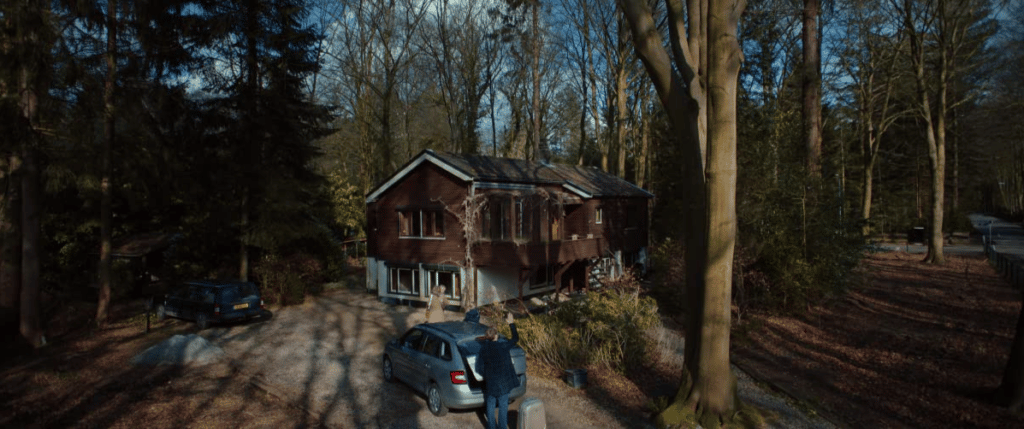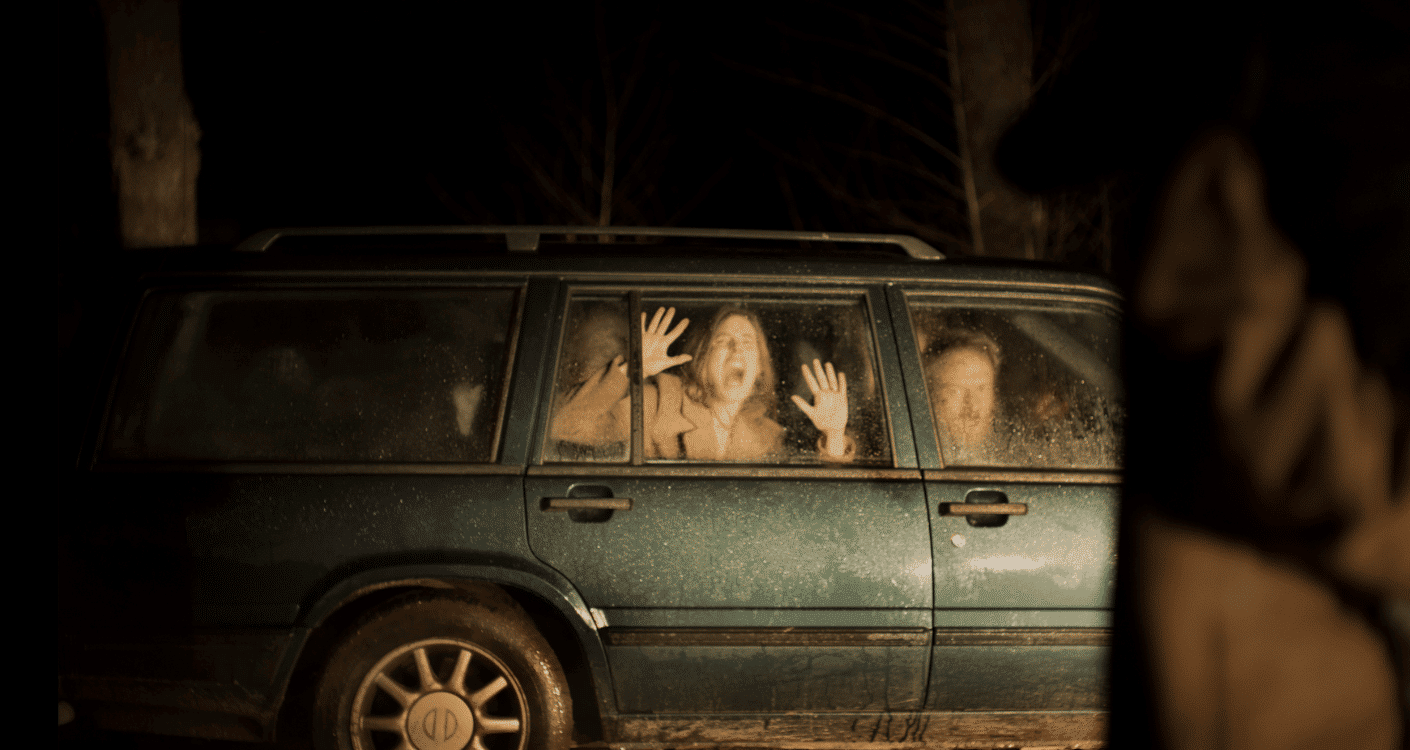
Speak No Evil (2022) is so effective because it comes from such a familiar place: in many respects – and stick with me here – it’s the ultimate middle class European horror, where politeness and social norms conspire to place decent-enough people in a devastatingly precarious condition. It opens with a car driving through the night in the middle of nowhere, its headlamps ominously picking up just a little of the road ahead; it’s a good piece of foreshadowing, because restricted vision is definitely something of a theme here.
But we’re soon in idyllic Tuscany, where Danish family Bjørn (Morten Burian), Louise (Sidsel Siem Koch) and daughter Agnes (Liva Forsberg) are enjoying a summer holiday with a lot of other thinly genteel types; dad Bjørn seems particularly charmed by its escapism, and noticeably less so by the daily rigmarole of family life (though his daughter’s stuffed toy and her equal devotion to it/ability to lose it would drive anyone mad). Whilst there they befriend a Dutch family – a mirror reflection of themselves – husband Patrick (Fedja van Huêt), wife Karine (Karina Smulders) and son Abel (Marius Damslev). They hit it off, and the Dutch extend an invitation for them to come and visit; probably assuming this is just one of those things people say, Bjørn and Louise are surprised to receive a postcard a couple of months later, reiterating the invite. Denmark is getting cold and dark by now: after ruminating on the ethics of taking another flight that year, or the perceived impoliteness of turning the offer down, they decide to go (and the film is very well-observed in its script, capturing that kind of lip service to current concerns which is instantly recognisable).
The family drives to Holland, and it’s a happy reunion, although there are immediately a few minor issues: Patrick has forgotten that Louise is a vegetarian, insisting that she try the roast boar he’s spent all day preparing; Agnes will have to sleep on the floor in Abel’s room, which doesn’t exactly look comfortable – but these minor etiquette issues probably could have been forgotten, were there not more and more of them, escalating quickly towards a very uneasy situation. Of course the family soon wants to leave, but again, its their due diligence to what they ought to do which lands them in seemingly inescapable trouble. The sheer awkwardness of being in someone else’s home is used to unendurable effect here: the film takes it to extremes, sure, but it can do so because it understands that most people are creatures of habit, and we’re protective of our own habits. It’s all so plausible. And the film isn’t one straight line from bad to worse; it meanders, so that sometimes things are better, and sometimes worse. You don’t know what to think. Patrick and Karin, with their nearly mute son, are odd, sure, but are they villains? Or do they, as they insist, just do things differently?
As for Bjørn and Louise, they are vulnerable in many ways because they are so devoted to doing things the right way, though it’s clear that Bjørn is more than a little detached and bored of his life, going through the motions; he says as much, later, where his wife can’t overhear. Louise is a little more comfortable living within the trammels of social rules and expectations – we see her enjoying a dinner party – but there can be tension between husband and wife, and she’s fiercely defensive over Agnes. Well, for the most part: they both make mistakes, too, even where their daughter is involved, and this is used against them. But moments of wrongdoing, if you like, or rebellion, are short-lived. It’s interesting that, at the dinner table, the Danes and the Dutch joke over the stereotype of the Swedes being very tightly-laced; the Danes are, too, to enough of an extent that they nod through all kinds of troubling behaviour. But then that’s no doubt the point – people will tolerate anything rather than cause conflict. Patrick and Karine know this, and play the game; they know what will and won’t be challenged. The film is a hell of familiar situations all growing so volatile, that you can hardly bear to see them through.
Language contributes to the smouldering tension, with English being used as a lingua franca, Danish being used for Bjørn and Louise to thrash out/smooth over things without being understood by Patrick and Karin, whilst Dutch (not translated) is occasionally spoken too, placing us in the same situation as Bjørn and Louise – assuming we’re not Dutch speakers, we are locked out of some of that communication along with them. It blends a little of the ‘stranger in a strange land’ paranoia with a very domestic kind of horror. Whilst elements of the plot eventually reach breaking point, the film’s immensely cruel and even relatable ending will stay with you, even if you dislike it because it disrupts your expectations. Remember, the one constant running through Speak No Evil is its study of good people doing nothing; director Christian Tafdrup burns that message into his closing scenes. It’s unbearable, yes, but it’s very powerful.
Speak No Evil featured at the Fantasia International Film Festival 2022.
